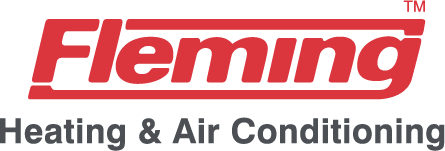
Buying your first home is exciting. You’re likely trying to keep track of numerous details about making the right choice. We believe that gaining insight into your future HVAC system is essential. The property’s HVAC system represents a significant investment and source of potential long-term costs, which is why due diligence should be a top priority for first-time homebuyers.
In the following guide, we’ll outline seven tips for discovering all there is to know about a home’s heating and cooling system. And if you want a more in-depth opinion from the pros, feel free to call Fleming Heating & Air Conditioning Inc. Our seasoned technicians can weigh in on your options with industry insights you won’t find elsewhere.
1. What HVAC System Are You Working With?
Start by identifying what type of HVAC system the home features. Furnaces generally last longer than air conditioners, and newer types of HVAC products like heat pumps feature average life spans that are even longer. Tracking down the make and specific model provides a clear understanding of how much routine maintenance it might need.
2. How Long Ago Was the System Installed?
It also helps to learn how old the HVAC system is when you're looking at a new home. In general, HVAC systems last about 10-12 years. Learning its approximate installation date helps you plan for possible repair needs or considerations if it might eventually stop working. Older systems are more prone to problems, so fiscal planning for a replacement unit could be necessary sooner than you thought.
3. Is the Warranty Still in Effect?
Check if the HVAC system is covered by a warranty. If it is, you’ll appreciate how it can lighten the load for maintenance expenses. HVAC warranties typically include parts and labor, but it's important to note that details will vary. Make sure you go over any terms you don’t recognize to make sure you fully understand your coverage and potential out-of-pocket costs.
4. Has the System Ever Been Professionally Serviced or Maintained?
Take a close look at the maintenance history of the HVAC system, if the records are available. This kind of information can demonstrate if the repair needs are high or how often a tune-up was scheduled. Inquire about key tasks like filter changes, which can indicate it received regularly scheduled tune-ups.
5. What Are the Energy Efficiency Ratings?
Selecting a system with high energy efficiency means smaller utility bills and less of an impact on the environment. Locate the seasonal energy efficiency ratio (SEER) ratings for air conditioning as well as the annual fuel utilization efficiency (AFUE) for furnaces. The higher the SEER rating, the more efficient the cooling over the whole season, while high AFUE ratings indicate that the fuel is more effectively burned for useable heat.
6. Did You See Any Problems After Your Own Inspection?
Even without the know-how of an HVAC technician, it's still a good idea to examine the HVAC system on your own. Keep an eye out for signs of problems that haven't been mentioned by the seller. This can mean bizarre noises, unequal airflow and attempts at concealing any serious damage.
7. Have You Asked Your Local HVAC Professional?
If you're unsure about the current state of the HVAC system, it's beneficial to get a professional opinion from experienced HVAC professionals. They can spot things you might not, such as leaks in the refrigerant, wiring issues or flawed ductwork.
A Chat with Fleming Heating & Air Conditioning Inc Simplifies Your Home-Buying Journey
Finding your first home should be thrilling, and Fleming Heating & Air Conditioning Inc will do everything possible to ensure yours is too. Reach out with us at 877-389-2465. We can go over the details about how our HVAC services help make this process smoother, giving you what you need to step into your new home with confidence.


